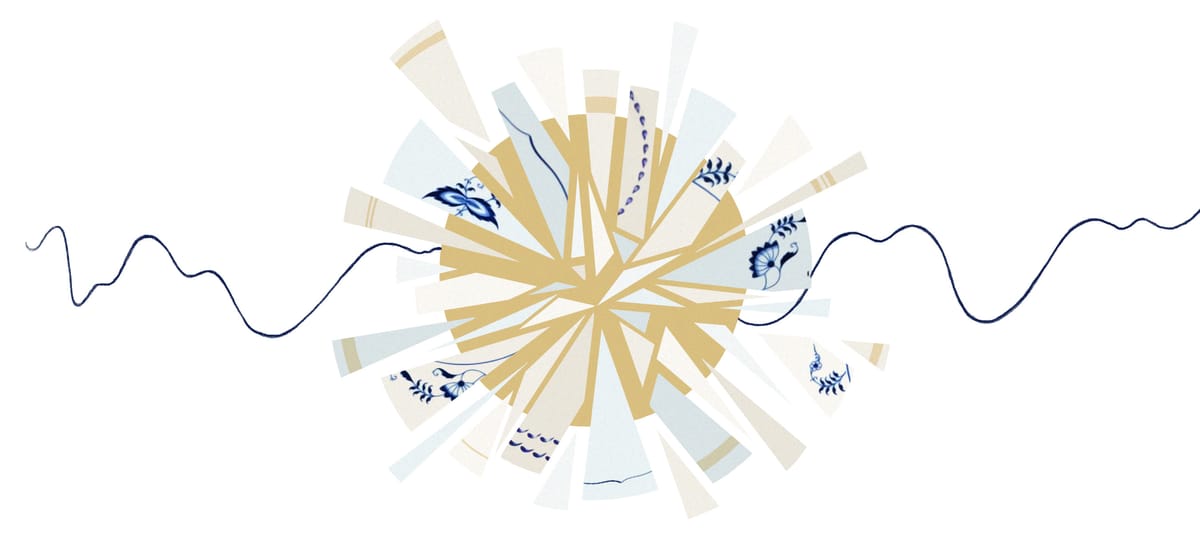My First Rebellion
by Nancy Huggett | Start small.

The dishes had been handed down for generations, or at least two, and that was a lot, considering when and how we came over, the whole white lot of us, as farmers and potato exiles mostly. As hard workers and alcoholics, most of us. Mostly. So. The dishes. They lived in the old oak sideboard that came from my grandparents. The rich ones. The ones who escaped servant-class England on a slow boat to Chile with only bananas for the whole journey. That’s the story. But in Chile, their fortunes took a turn, as my grandfather was in munitions in a world exploding with the need for explosives, and following his explosive rise to the top of a chemical company there was a faster boat back to the home office and a house on the top of a mountain and a country house down in the river valley. And the gold-plated dishes, a full set. All living for Sunday and celebratory dinners in the old oak sideboard, brass button handles hammered at some point, like the keys on the piano, by my brother with his wooden toy hammer. Dented, all the world dented. But not the silver cutlery in brown felt, the knives separated with dividers, the chafing dishes in their little flannel pouches. And the dishes. Always hand-washed. Until later, much later, when my mother tired of such tradition and threw caution to the wind and used them all, all the time: the buttery silver in front of the TV, hot dogs from the Foreman grill served on those fragile gold-gilded dishes, stacked afterward in the dishwasher. But that was later. Later, when I knew how to rebel with a crowd, carry placards, wear pants that stymied my father, argue incessantly for justice or trees. When I marched up and down the hills that held the power.
This, though, was my first little rebellion. Little rule-follower that I was. Little no-muss no-fuss, as there was already enough of that around to sink the family ship. I was tasked with stacking the dishes, carrying them in small batches to the dining room down the hallway, with the Persian carpet, the oak sideboard, the mahogany dining table, the needlepointed chairs (also passed down for generations). My task: to carefully place the dishes in their keeping spot, away from daily dishes, daily chores, daily comings and goings. And as I walked into that ambered room, all red and Persian blue and oak, I took one dish and flung it in the air, like a Frisbee, straight up, just missing the chandelier. Caught it with nary a pause, pinched between thumb and fingers, and then slid it into its spot. It did not break. No one saw. There were no repercussions or heated discussions or warnings about what could have happened. Just me, the plates stacked away, and a secret knowledge that I had something in me that wanted to break things.
Nancy Huggett writes, lives, and caregives on the unceded territory of the Anishinaabe Algonquin Nation (Ottawa, Canada). She has work out or forthcoming in American Literary Review, Literary Mama, One Art, and Poetry Northwest. She’s won some awards and a gazillion rejections. She keeps writing.
This essay is a Short Reads original.
Calling all cat (lads &) ladies/ We’re looking for flash nonfiction about animals. 🐈 🐕 🐏 🦫 🦆 🦦 🐙 🦀 🐟 See the submission call →
Want more like this? Subscribe to Short Reads and get one fresh flash essay—for free—in your inbox every Wednesday.






